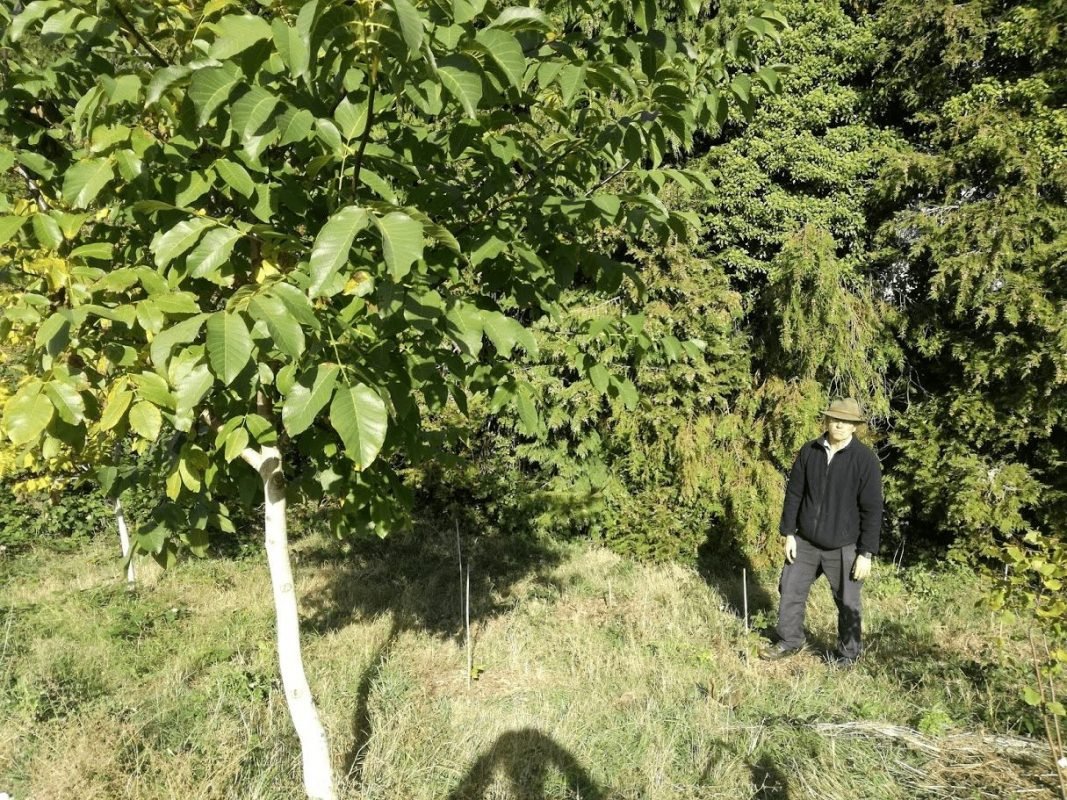An interview with Phil Pritchard of Oxford City
Since 2014, ITF has partnered with Oxford City Farm (OCF) who provide highly valued opportunities for people of all ages and backgrounds to engage with farming and food production, animals, nature and each other. Phil Pritchard, a member of OCF, shares his experience and advice for anyone interested in tree planting.Can you tell us a bit about Oxford City Farm?
OCF was set up 10 years ago as an organisation to promote well-being and food production in Oxford. It also encourages local people to learn how to grow food for themselves. That organisation is partly for fun but also for community building in order to develop resilience and food security locally. I think it is important for us that in the future we have a more sustainable food production in a world living through climate change.
The organisation has trustees, staff and many volunteers to look after this project.
How many months throughout the year is OCF open to the public and what activities do you propose to the public?
We do basic tree planting at our forest garden with the general public but also with school groups, if it at the right time of the year and if we have trees to plant. We are open all year around we have volunteers who droppings sessions. Because of COVID-19 we’ve had to close. But up until now we’ve been open every week on Wednesday and every other week on Saturday for the public. We also do team buildings activities with different companies.
What brought you and Oxford City Farm to tree planting?
Tree planting is very crucial at this time as a response to climate change. Planting trees is the most effective way as I see it to sequestrate carbon from the atmosphere. They also have a benefit for wildlife. A lot of the trees that we are planting we chose have a good pollinating insects for birds and also provide food for humans.
I am personally very interested in the functioning of forest gardens in order to create a “food forest”. Using trees to provide food that keeps coming without any need for ongoing management. I think these trees have a very important role to play in the future to meet our food supply need and for wildlife.
What are Oxford City Farm activities when the tree planting season is over?
Obviously planting the trees is just the start, if you want a tree to grow up and grow well, you will need to maintain, manage and look after it. Other trees that we have planted, we put compost on them, feed them, weed around them to stop grasses taking over. Some trees also need to be pruned to encourage growth and rooting. The main aspect is the maintenance.
On the site we do other sort of work like wildlife conservation work, creating nesting boxes for birds, growing vegetables, harvesting and bee keeping. Volunteers can therefore come outside of the tree planting season and learn other skills as learning how to plant areas of ground to make pollen and create rich environment for the wildlife. These activities are also very important to us because OCF also aims to enhance local biodiversity.
What is your favourite tree and why?
I would say the mulberry tree, it is such a beautiful tree and their berries are exquisite.
Donate Today
Support communities across the UK to plant trees.


